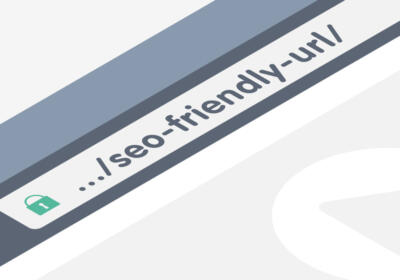What Are The Different Types Of SEO?
Whether you’re a small business owner, an e-commerce entrepreneur, or a marketing professional, understanding the various types of SEO can empower you to create a well-rounded strategy. Let’s dive into the main types of SEO in digital marketing and their unique contributions.
What Is On-Page SEO?
On-page SEO involves optimizing individual web pages to improve search engine rankings and deliver a seamless user experience. This type of SEO focuses on elements you can control directly on your website, ensuring both search engines and visitors find value in your content. Key components include:
- Keyword Optimization: Researching and incorporating relevant keywords in titles, headers, and throughout the content. Keywords should align with user intent, ensuring your page is the best match for the queries you’re targeting.
- Content Quality: Search engines prioritize high-quality, relevant, and engaging content. The content should provide answers to user questions, be easy to read, and offer unique insights that set you apart from competitors.
- Meta Tags: These include meta titles and descriptions, which not only help search engines understand the content of your page but also entice users to click on your link in search results. A compelling meta description can significantly boost your click-through rate (CTR).
- Internal Linking: Establishing a logical structure by linking to other relevant pages on your site helps users and search engines navigate your website more effectively. Internal links distribute “link equity” across your site, improving overall rankings.
- Mobile-Friendliness: With the majority of web traffic now coming from mobile devices, ensuring your site is responsive and easy to navigate on smaller screens is critical.
On-page SEO lays the groundwork for a solid SEO strategy by ensuring your website is user-centric and search engine-friendly. Neglecting this step can make it difficult for other types of SEO to deliver their full potential.
What Is Off-Page SEO?
Off-page SEO focuses on activities outside your website to improve its credibility and authority. Search engines look for external signals to determine your site’s trustworthiness and relevance in your industry. This involves:
- Backlink Building: High-quality backlinks from reputable websites are one of the strongest ranking signals for search engines. It’s not just about quantity but quality—a few backlinks from authoritative sites in your niche can outweigh dozens from low-quality domains.
- Social Media Engagement: While social media signals don’t directly affect rankings, they amplify your content’s visibility and can indirectly lead to more backlinks, mentions, and traffic.
- Brand Mentions: Even unlinked brand mentions on credible websites can signal to search engines that your business is recognized and trustworthy.
Off-page SEO is crucial for establishing your website as a trusted authority within your industry or niche. It’s a long-term strategy that requires consistent effort but pays off by increasing your site’s domain authority and overall search visibility.

What Is Technical SEO?
Technical SEO ensures your website is optimized for search engine crawlers and provides a seamless experience for users. It addresses the technical aspects of your site that can impact rankings. Important aspects include:
- Site Speed Optimization: Slow-loading websites drive users away and hurt rankings. Optimizing images, leveraging browser caching, and minimizing JavaScript can improve load times.
- Crawlability and Indexing: Search engines need to be able to crawl and index your site effectively. Creating XML sitemaps, using robots.txt files correctly, and avoiding duplicate content issues are key here.
- Schema Markup: Adding structured data to your site helps search engines understand your content better and can improve how your pages appear in search results through rich snippets.
- Security: Implementing HTTPS ensures a secure browsing experience for users, which is a ranking factor in Google’s algorithm.
- Fixing Broken Links: Broken links can lead to poor user experiences and wasted crawl budgets. Regularly auditing your site and addressing errors is essential.
Technical SEO is the backbone of a strong website, ensuring it meets modern web standards and search engine requirements. Without it, even the best content may struggle to achieve high rankings.
What Is Local SEO?
If your business operates in a specific location, local SEO is essential for reaching nearby customers. This involves optimizing your online presence to attract users searching for local services or products. Key strategies include:
- Google My Business Optimization: Keeping your profile updated with accurate information like your address, phone number, and business hours is vital. Responding to reviews and posting updates also helps boost visibility.
- Local Keywords: Incorporating location-specific terms in your content and metadata ensures your business shows up in relevant searches, such as “pizza near me” or “best mechanic in Toronto.”
- Customer Reviews: Positive reviews not only build trust but also influence search rankings. Encourage satisfied customers to leave reviews on Google, Yelp, and other platforms.
- NAP Consistency: Ensure your Name, Address, and Phone Number are consistent across your website, Google My Business, and other directories. Inconsistencies can confuse both users and search engines.
Local SEO helps small businesses stand out in their communities and attract foot traffic. It’s especially valuable for service-based businesses like restaurants, salons, and medical practices.
What Is E-Commerce SEO?
E-commerce SEO is tailored for online retailers and focuses on improving product visibility. With fierce competition in online shopping, this type of SEO is critical for driving sales. Key strategies include:
- Product Page Optimization: Detailed descriptions with keywords, compelling visuals, and clear calls-to-action can make your products stand out. Use alt text for images to improve accessibility and rankings.
- Category Pages: Optimizing category pages ensures users can easily find what they’re looking for while signaling to search engines the relevance of grouped products.
- User Reviews: Leveraging customer feedback not only builds trust but also helps incorporate user-generated keywords into your pages.
- Site Speed: Online shoppers expect fast-loading pages, especially on mobile devices. Slow sites can lead to cart abandonment and lost revenue.
With e-commerce SEO, your store can rank higher for transactional keywords and drive conversions. It’s a blend of technical optimization, user experience, and content strategy tailored for online sales.
What Is Content SEO?
Content SEO is all about creating and optimizing high-quality, relevant content to answer user queries. It aligns closely with on-page SEO but focuses specifically on the content itself. Core elements include:
- Blog Optimization: Addressing long-tail keywords and trending topics through blog posts can attract niche audiences and position your site as a thought leader.
- Visual Content: Optimized images, videos, and infographics can increase engagement and improve rankings. Visuals also make your content more shareable.
- Topic Clusters: Organizing content into interlinked clusters around core topics builds authority and helps search engines understand your site’s focus.
Content SEO is critical for engaging users and maintaining relevance in search results. High-quality content keeps visitors on your site longer, reducing bounce rates and signaling value to search engines.
What Is Enterprise SEO?
Enterprise SEO is designed for businesses with thousands of pages, such as e-commerce giants and global organizations. Managing SEO at this scale requires specialized strategies. Key components include:
- Automation Tools: Tools like SEMrush and Ahrefs help manage large-scale keyword research, content updates, and reporting efficiently.
- Data-Driven Insights: Leveraging analytics to identify opportunities, track performance, and refine strategies is essential for staying competitive.
- Scalability: Ensuring that your SEO strategies can adapt as your website grows—whether through new product launches or expanding into international markets—is critical.
Enterprise SEO ensures even the most complex websites maintain strong search visibility. It’s about balancing detailed technical work with big-picture strategies to support large-scale growth.
Wrapping Up: Which SEO Strategy Is Right for You?
A comprehensive SEO strategy often combines several types of SEO. For example, a local restaurant may prioritize Local SEO and On-Page SEO, while a large retailer might focus on E-Commerce SEO and Technical SEO.
No matter your business type, the key to success lies in understanding your goals, audience, and competition. By leveraging the right mix of SEO strategies, you can improve rankings, attract more visitors, and ultimately grow your business.
What’s your top SEO priority this year? Contact us by email at mat@marketingtech.ca, by phone at 647-405-6109, or schedule a free online assessment.



